IP IE News: Virtual Student Exchange in Sustainable Manufacturing
International Program, Department of Industrial Engineering offers Virtual Student Exchange Programs in Sustainable Manufacturing. It will be lecture series run in one semester during Odd Term 2020/2021.
Participants will be enrolled in one semester, a non-degree program with no fees incurred. Participants will also receive certificates and/or earn Credit Transfers.
For Applying the exchange, click http://bit.ly/exchangestudentIPIE
Send any inquiries to:
- email: [email protected], or
- line: ip_ieuii
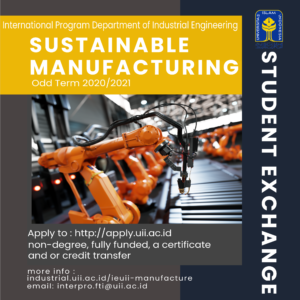
COURSE DESCRIPTION :
The UN Brundtland Commission defines sustainable development as “ development that meets the needs of the present without compromising the ability of future generations to meet their own needs.” This is often linked with the concept of the Triple Bottom Line in which sustainability is the balance of the intersection between economic (profit), environmental (planet), and social (people).
In sustainable manufacturing, the focus is not only on how the product is made but also on the inputs, the manufacturing processes, and the design of the product.
Sustainable manufacturing also takes into consideration the amount of energy and material to produce the product, the amount of waste, the use of fewer hazardous materials, and recyclability or lower energy use of the product. These can be achieved from very simple process improvements to large investments in new technologies and product redesign
This course introduces students to sustainable manufacturing in practice along the life cycle of a product discussing the following topics
- Renewable materials
- Fewer materials and inputs and materials that are non-hazardous or recycled
- Modification of production processes to use less energy, water, and materials and to produce less waste
- Using less packaging, lowering product weight, using more efficient transportation and logistics
- Designing products to be reusable, remanufacturable, recyclable, or biodegradeable
- Expanding the life of the product
- Reducing the environmental impact of sales and distribution
openLCA, an open source, and free software for Sustainability and Life Cycle Assessment will be extensively used.




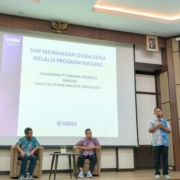

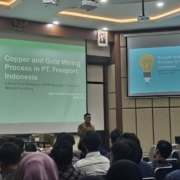
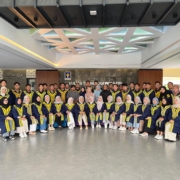

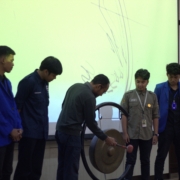
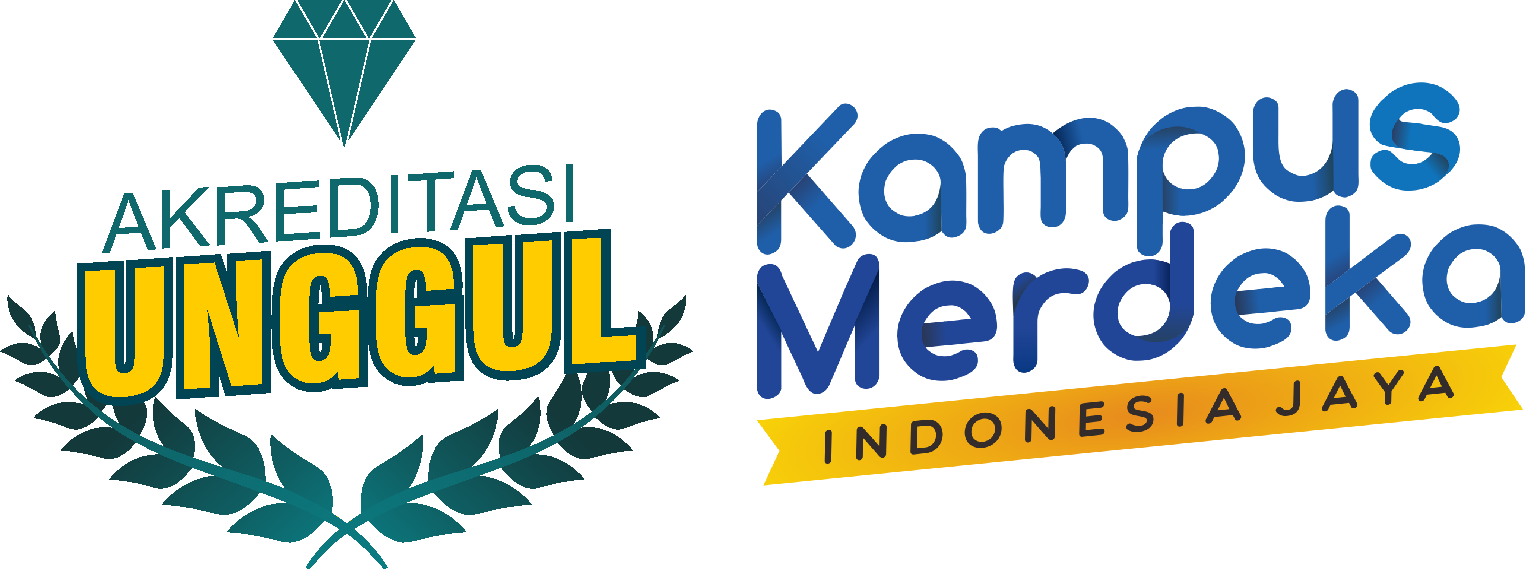




 IP IE UII
IP IE UII